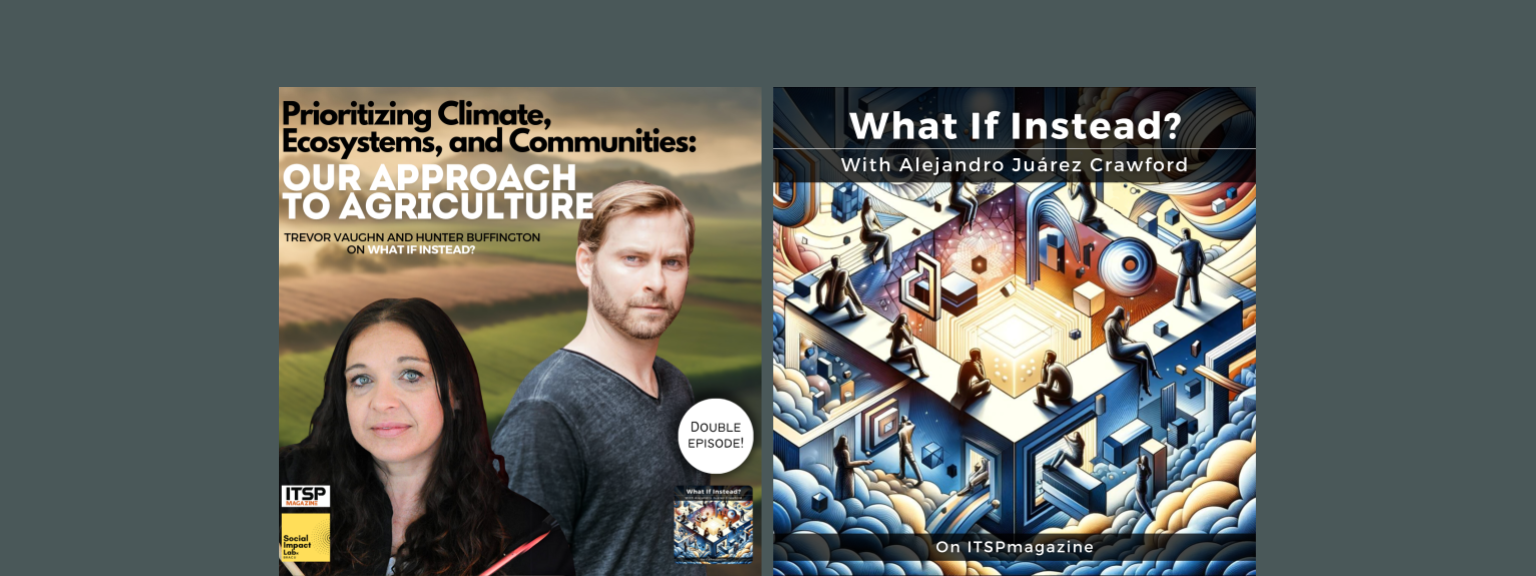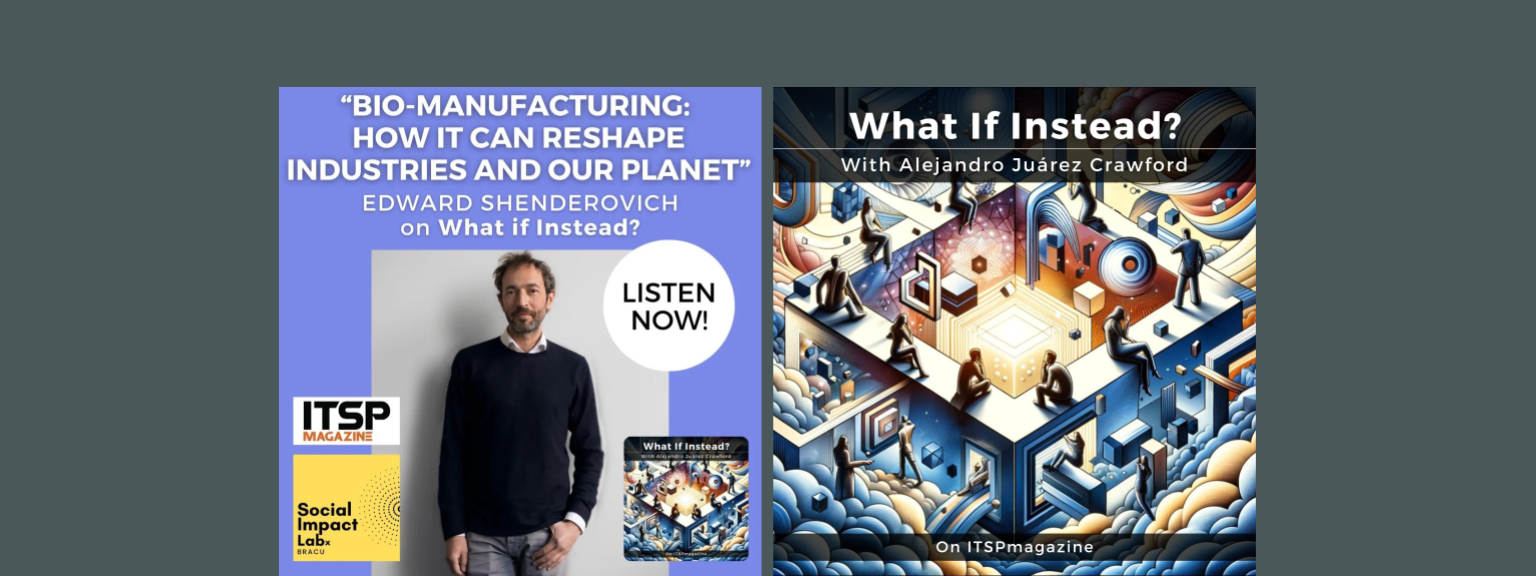Prioritizing Climate, Ecosystems, and Communities in Our Approach to AgricultureIn this two episode conversation as part of the What if Instead? podcast, Hunter Buffington and Trevor Vaughn represent the convergence of farming policy, sustainability, innovation, and technology. Buffington, an industrial hemp policy expert and Director of Agriculture Policy Solutions, operates at the intersection of food systems, climate action, and regulatory frameworks. Vaughn, co-founder of the High Plains Farming Initiative, focuses on transforming waste into valuable products that benefit farmers. Their work centers around creating sustainable, profitable farming communities while tackling broader challenges of climate change and resource management. Together, they explore how to empower farmers, foster collaboration between science and agriculture, and redefine traditional agricultural paradigms.Buffington emphasizes that our current approach to agricultural systems is not sustainable. She remarks,We recognize that we can’t keep doing the same things the same way… most people are deeply unsatisfied or unhappy with the state of our world right now… How do we embolden and empower the farmers to bring their knowledge to the forefront?… connect them with science in a way that’s meaningful… and maybe save the planet because that’s a reality.This perspective underscores the urgency of rethinking agricultural practices and integrating scientific advancements to address global challenges. Vaughn echoes this sentiment, using cotton as a metaphor for the complexity and interconnectedness of agricultural systems:…cotton isn’t what you think it is. It’s all these other things… It’s at the backbone of civilization… Let’s let King Cotton be King Cotton… but as long as cotton is grown with dicamba-resistant GMO seeds and pesticides… we’re forcing farmers to the edge of the cliff.Vaughn’s commentary on cotton highlights both traditional farming practices and the need for a paradigm shift towards more sustainable, holistic approaches. Buffington further challenges the conventional focus on monoculture, particularly in large-scale agriculture:…this idea that you’re gonna… focus on a mono-crop at a million acres… most of our farmers are farming 10,000 acres… Every margin counts… everything that comes off that cotton… has to be marginalized so that there’s a profit opportunity for the farmer.She critiques the cycle of resource depletion and environmental degradation caused by conventional farming methods, advocating for a re-evaluation of how we manage soil, water, and agricultural inputs. Buffington also stresses the importance of staying local to reduce environmental impact and enhance sustainability:…the second that you transport anything over 100 miles… the fuel, the rubber, the asphalt… eats any kind of carbon advantage… it’s all transportation… and then it’s the chemicals… But we also have to incentivize them by making it easy, keeping it close, and then commoditizing it.Localizing the supply chain minimizes carbon emissions and strengthens local economies by creating jobs and fostering closer relationships between farmers and their communities. Vaughn supports this vision, pointing out the potential of combining old and new agricultural techniques to create resilient, profitable small-scale farming operations:…a new model emerging here, based off of old techniques… good old-fashioned manure composting… and other new breakthrough… technologies… the profitability of these small farmers is on a whole other scale.Vaughn’s vision for the future includes creating diverse, sustainable communities where agriculture and urban development coexist harmoniously, driven by a commitment to healing the land and fostering inclusive growth.Finally, Vaughn envisions a future where circular systems, creativity, and heart-centered approaches lead to a new way of living and working together:…we can’t create that new world… without… a lot of creatives, a lot of people that really are coming from a heart-centered place and not an extractive consumption place… getting back onto the land… having our families be our neighbors again… I want that… to be a really diverse set of kids and moms… Mescalero Apache kids… Comanches… black folks from the Houston area… migrants from Ghana, from Mexico, from Venezuela.Tune into the episodes to hear the conversation:Talking To People Who Think Like Us Has Made Us Stagnant | A conversation with Trevor Vaughn and Hunter Buffington | What If Instead? Podcast with Alejandro Juárez Crawford and Miriam Plavin-MastermanA System Where Local Is the Norm – and We Pay What It Really Costs To Drive Something Hundreds of Miles | A conversation with Trevor Vaughn and Hunter Buffington | What If Instead? Podcast with Alejandro Juárez Crawford and Miriam Plavin-Masterman
What if Instead? is produced by Srijan Banik and the team at Social Impact Lab at BRAC University, which Banik founded. Cohosts Mim and Alejandro’s One Size Fits None: Time for an Entrepreneurial Revolution, is forthcoming from Emerald Publishing in Summer 2025


